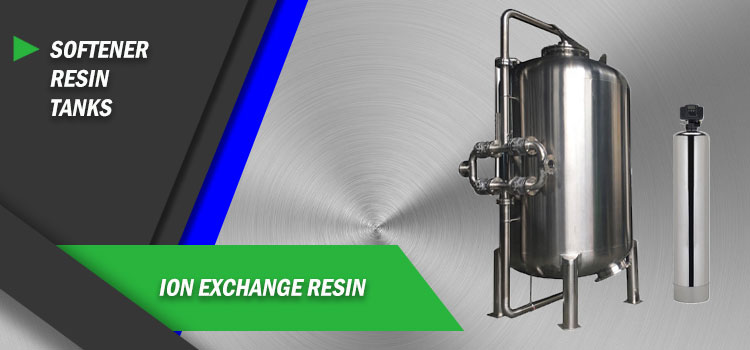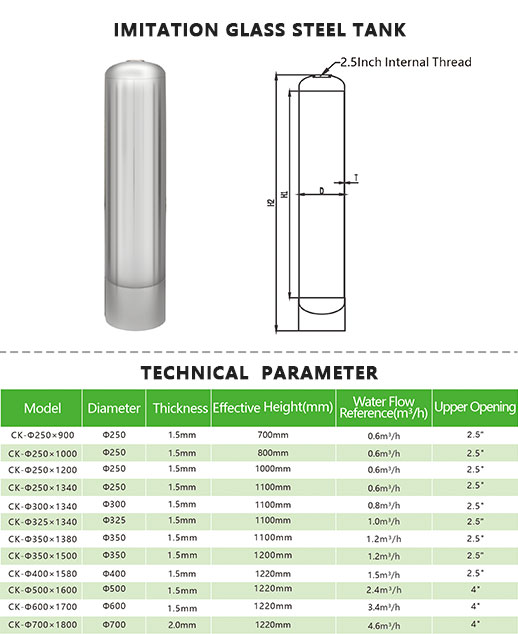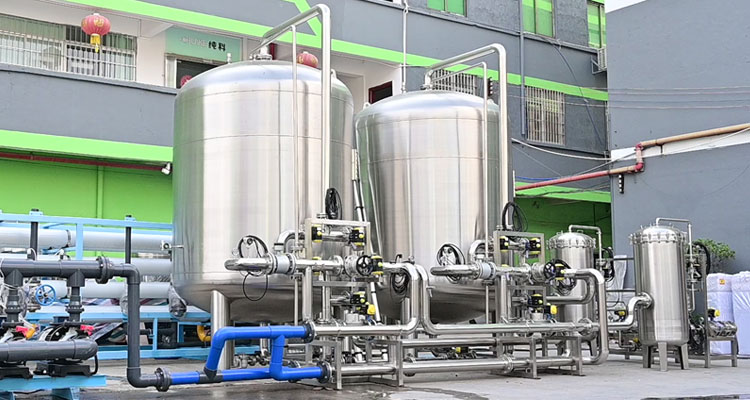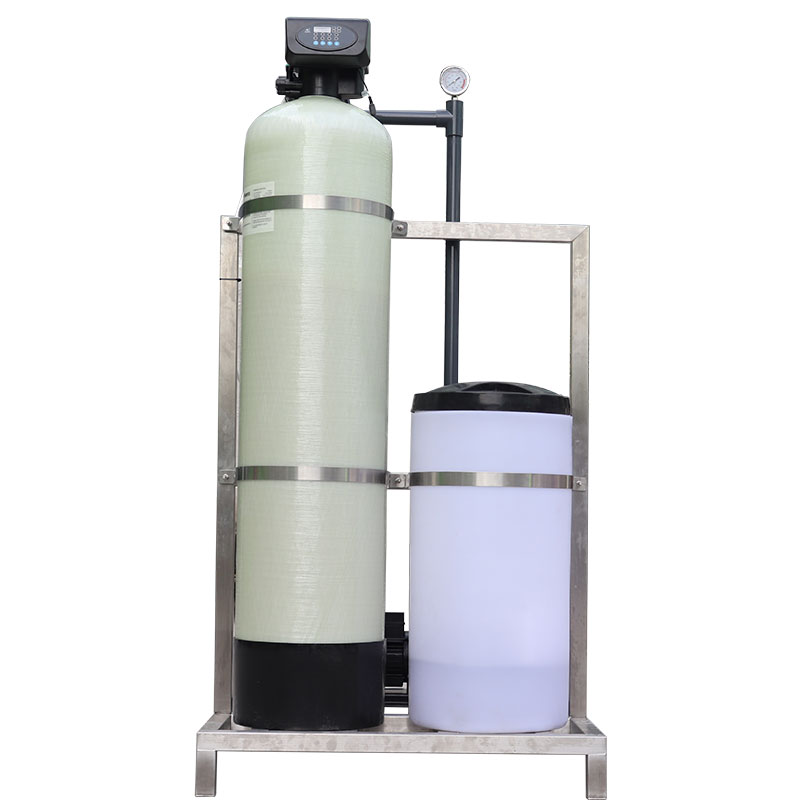How long do softener salt blocks last in a water softener?
Water softeners have become an integral part of many homes, especially in areas with hard water. To ensure the effective operation of water softeners, softener salt blocks play a vital role. However, many people have limited knowledge of softener salt blocks and are not clear about their purpose, working principles, and lifespan.
This article will explore in detail what softener salt blocks are, their role in a water softener system, and how long they can usually last.

What are softener salt blocks?
Softener salt blocks are a special form of salt used in water softeners. They are usually made of sodium chloride (NaCl) or potassium chloride (KCl) and are used to regenerate the resin bed in the water softener to restore its ability to soften water. Water softeners use the principle of ion exchange to replace hardness ions such as calcium and magnesium in water with sodium ions or potassium ions, thereby reducing the hardness of the water and preventing scaling in pipes and appliances.
Types of Softening Salt Blocks
There are several main types of softening salt blocks on the market:
● Sodium chloride salt blocks: This is the most common type of softening salt block, which is relatively cheap and widely used in home water softeners.
● Potassium chloride salt blocks: Potassium chloride is a substitute for sodium chloride and is suitable for people who need to reduce sodium intake. Potassium chloride salt blocks are usually more expensive than sodium chloride salt blocks.
● Evaporative salt blocks: This salt block is made through an evaporation process and has high purity, which is suitable for water softeners with higher water quality requirements.
● Solar salt blocks: This salt block is purified using solar evaporation technology and is usually used in industrial or large commercial soft water systems.
Shapes and specifications of softening salt blocks
Softening salt blocks come in a variety of shapes and specifications, including cubes, columns, and granules. Cubic or columnar salt blocks are usually designed for use in larger salt boxes and can provide longer regeneration cycles, while granular salt is suitable for smaller water softeners or systems that require more frequent regeneration.

What is the role of softening salt blocks?
Softening salt blocks act as regeneration resins in water softeners. As water flows through the resin bed in the water softener system, the calcium and magnesium ions in the water are replaced by the sodium or potassium ions on the resin, thereby softening the water. Over time, the sodium or potassium ions on the resin are gradually depleted, causing the resin bed to lose its softening ability. At this time, the water softener system enters regeneration mode, and the soft water salt block dissolves to generate brine, flushing the resin bed and restoring its exchange capacity.
Criticality of the regeneration process
The regeneration process is critical to the normal operation of the water softener. The soft water salt block dissolves to produce a high concentration of salt solution, which exchanges with the calcium and magnesium ions in the resin during the regeneration process, displacing them and draining them out of the system with the wastewater. After regeneration is complete, the resin bed is refilled with sodium or potassium ions, and the water softener has the ability to soften water again.
Impact of soft water salt blocks on water quality
The choice of soft water salt blocks will also have a certain impact on water quality. For example, sodium chloride salt blocks will introduce a small amount of sodium ions into the softened water, while potassium chloride salt blocks will increase the potassium ion content in the water. Although the concentration of these ions is usually low and does not have a significant impact on health, people with special sodium intake requirements may prefer potassium chloride salt blocks.

How long do salt blocks last in a water softener?
The life of a water softener system salt block depends on several factors, including the size of the water softener, the amount of water used in the household, the hardness of the water, and the regeneration cycle. The following are the main factors that affect the life of a water softener system salt block.
Water consumption
The more water a household uses, the more hard water the water softener needs to treat, and the more salt blocks it consumes. If there are more family members or if the water consumption is high (such as frequent use of washing machines, dishwashers, etc.), the consumption rate of water softener salt blocks will increase significantly. In this case, the salt blocks may need to be replenished more frequently.
Water hardness
The hardness of water refers to the content of calcium and magnesium ions in water. The harder the water, the more salt the water softener needs to consume during the softening process. Therefore, in areas with harder water, the use of salt blocks will be shorter and may need to be replenished monthly or even weekly.
Regeneration frequency of water softener
The regeneration frequency of water softener system directly affects the use time of salt blocks. Systems with a higher regeneration frequency will consume the salt block more frequently, shortening its service life. Some water softeners are equipped with intelligent control systems that can automatically adjust the regeneration frequency according to the actual water consumption and water quality, thereby optimizing the use of the salt block.
Salt tank capacity
The capacity of the water softener system salt tank also determines the use time of the salt block. A larger salt tank can store more salt blocks, thereby extending the time interval between salt block replenishment. For a larger salt tank, users may only need to replenish the salt block once every few months, while a small salt tank may need to be replenished more frequently.
Environmental factors
Factors such as ambient temperature and humidity can also affect the dissolution rate of the salt block. For example, in a high temperature and high humidity environment, the salt block may dissolve faster and shorten the use time. In addition, the salt block may absorb moisture when exposed to the air, causing it to clump or dissolve, so it is recommended to keep the salt box cover tightly closed when in use.
Salt block purity
Salt blocks of different brands and types have different purities. Salt blocks with higher purity produce fewer impurities during use, dissolve more evenly, and have a relatively longer use time. Salt blocks with more impurities may affect the working efficiency of the water softener system, and even require more frequent replacement of salt blocks.

How to extend the service life of water softener salt blocks?
Although the service life of salt blocks is affected by many factors, some simple maintenance and management measures can effectively extend their service life, reduce the frequency of replenishment, and reduce the overall maintenance cost. First, regularly check the salt block balance in the salt box to avoid replenishing the salt blocks after they are completely dissolved. Timely replenishment of salt blocks helps to maintain the continuous and efficient operation of the water softener system and prevent water quality from deteriorating.
Then choose the appropriate type of salt block according to the household water demand and water quality. If family members have special requirements for sodium intake, potassium chloride salt blocks can be selected. In addition, choosing high-purity evaporative salt or solar salt can reduce impurity deposition and extend the service life of salt blocks. If the water softener system allows manual adjustment of the regeneration frequency, the regeneration cycle can be appropriately extended according to the actual water use situation to reduce the consumption of salt blocks. Smart water softeners can automatically adjust the regeneration frequency according to water consumption to help users better manage the use of salt blocks.




